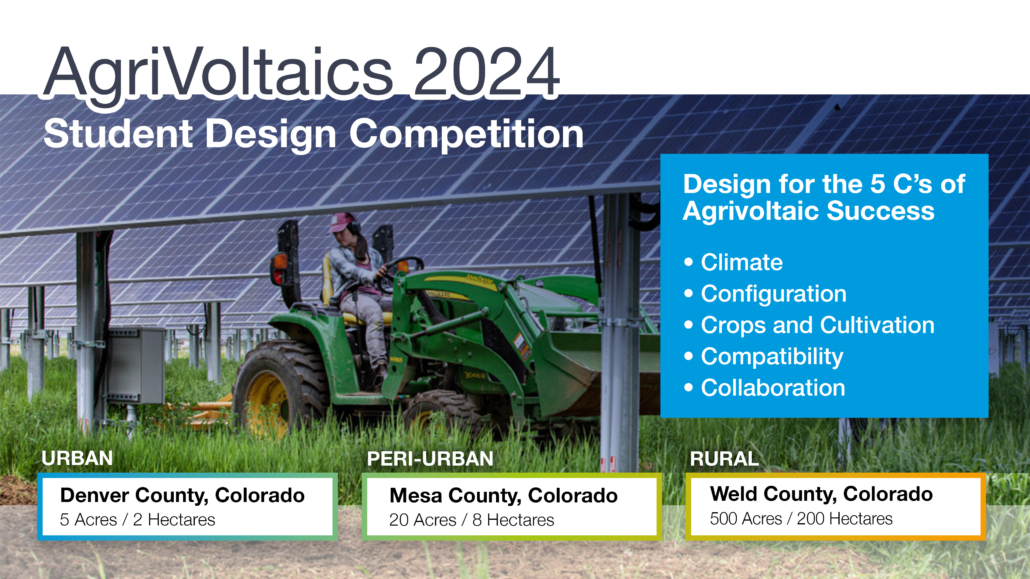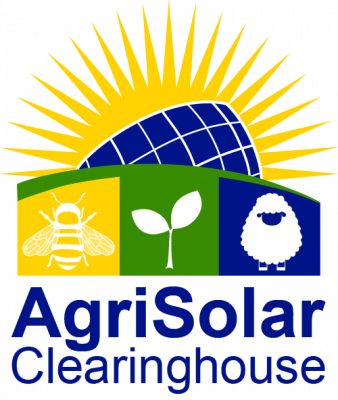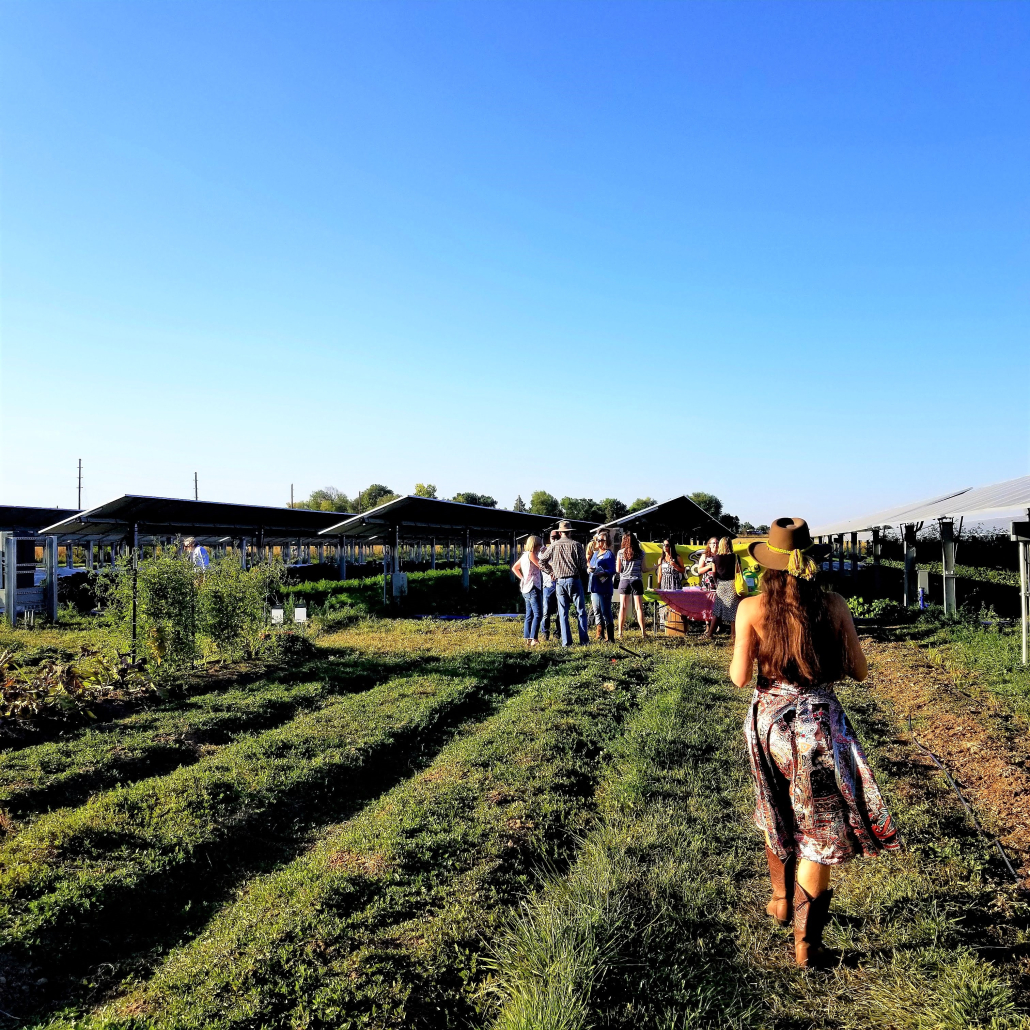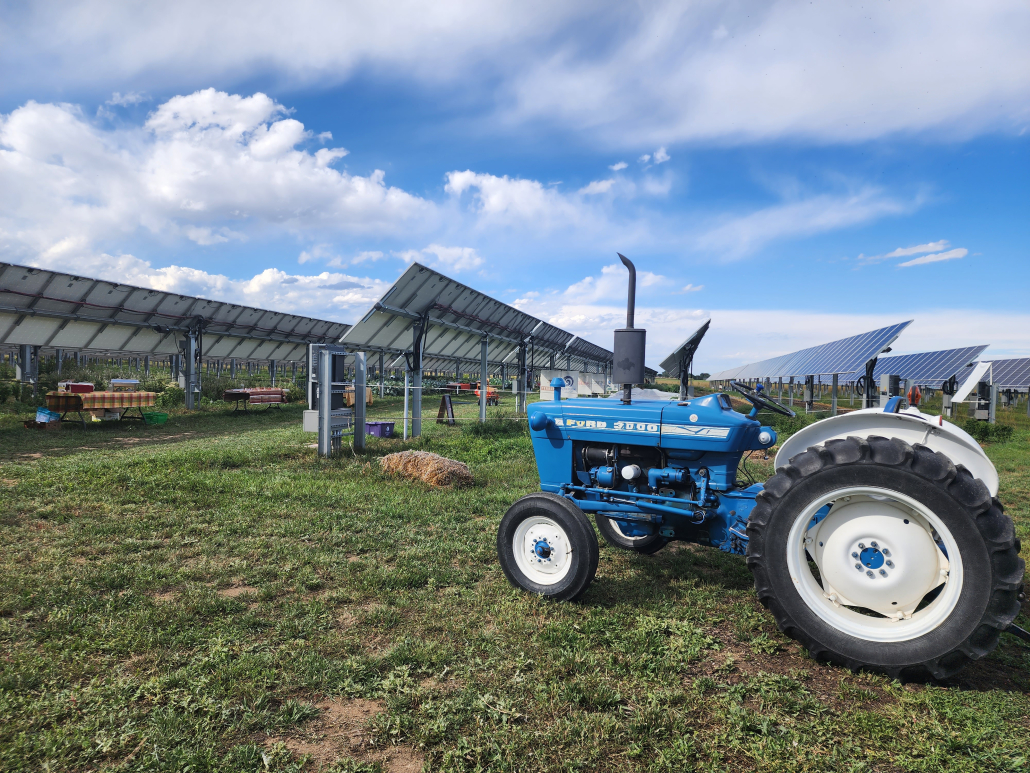January 29, 2024

Students interested in the creative and holistic design and development of agrivoltaic systems that combine the use of solar photovoltaic power on agricultural lands are being encouraged to “Solve This Challenge” by competing in this year’s Student Design Competition at the 5th Annual Agrivoltaics World Conference. The conference will take place in Denver, Colorado, from June 11-13 this year and will feature a diverse range of topic areas within the field of agrivoltaics from a wide range of industry experts. The conference chairpersons stated that the goal of this conference is to “connect the scientific and non-scientific communities necessary for agrivoltaics to flourish.”
According to the AgriVoltaics 2024 Student Design Competition page, “[t]he AgriVoltaics 2024 Student Design Competition aims to inspire students to think creatively and holistically about energy integration across rural and urban landscapes. The purpose of this competition is to provide students an opportunity to develop innovative agrivoltaic design concepts that address community sustainability challenges across the food-energy-water nexus.” Winning students will be able to present their work to the conference’s international audience, while teams will have the ability to showcase their projects in poster format at the Conference Design Competition Showcase.
The objectives of the competition include innovative integration; food-energy-water-nexus; scalability and adaptability; and social dimensions and community engagement.
Students submissions will be judged by a panel of academic and industry experts from across the globe.
Details on the competition, rules and requirements, judging criteria, and submission guidelines can all be found on the AgriVoltaics 2024 Student Design Competition HeroX page. All submissions must be submitted through the HeroX Platform.


